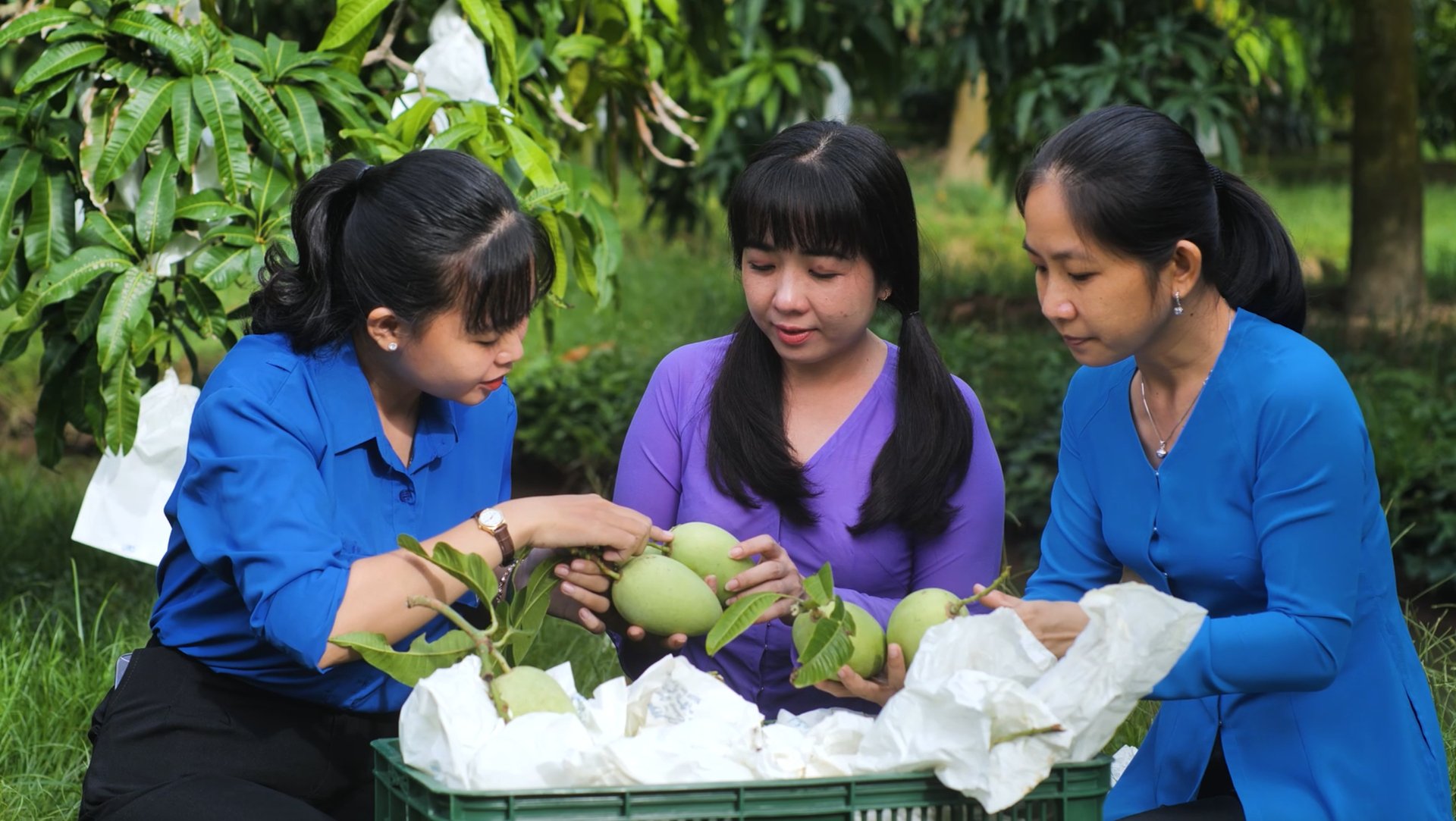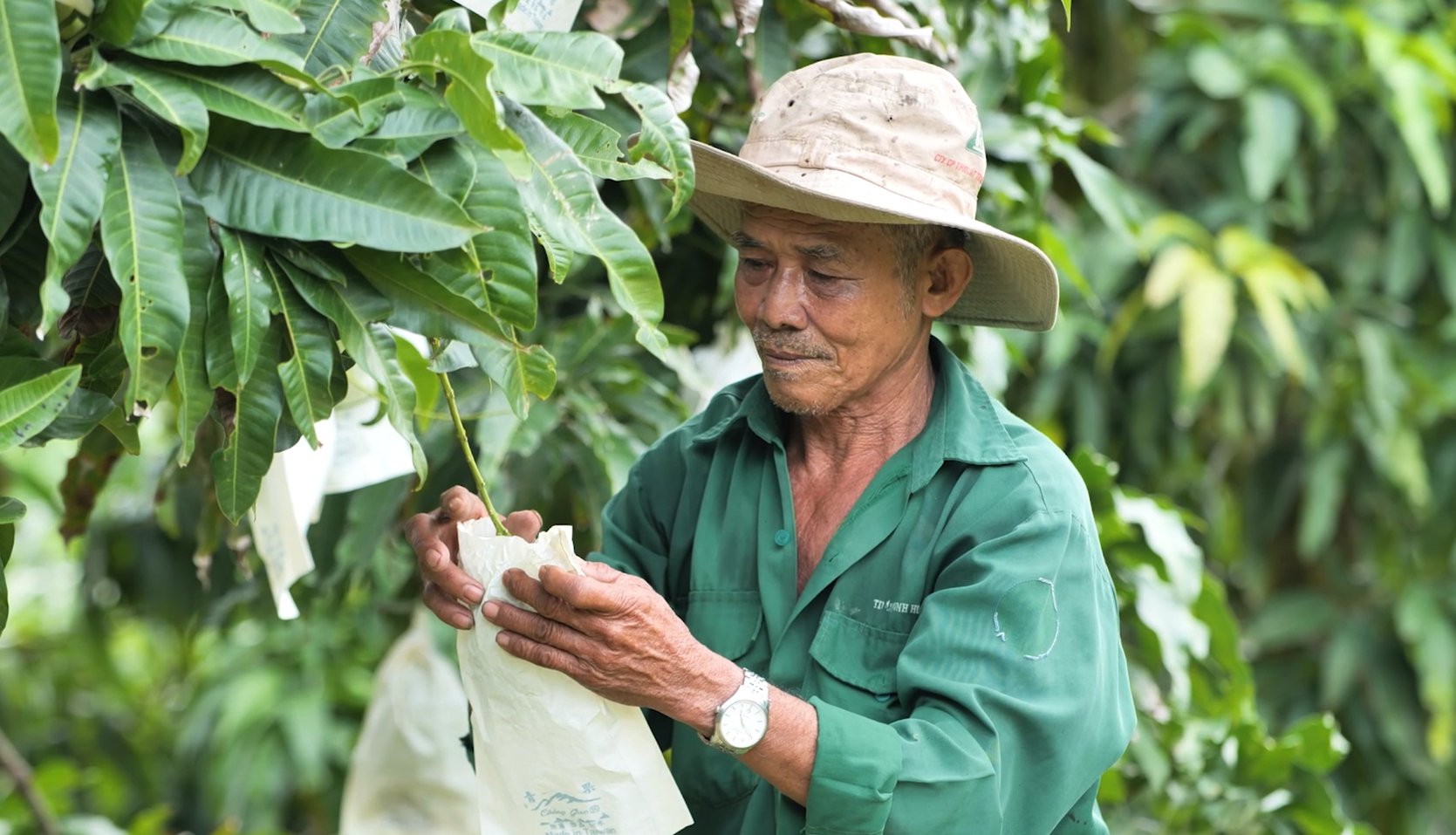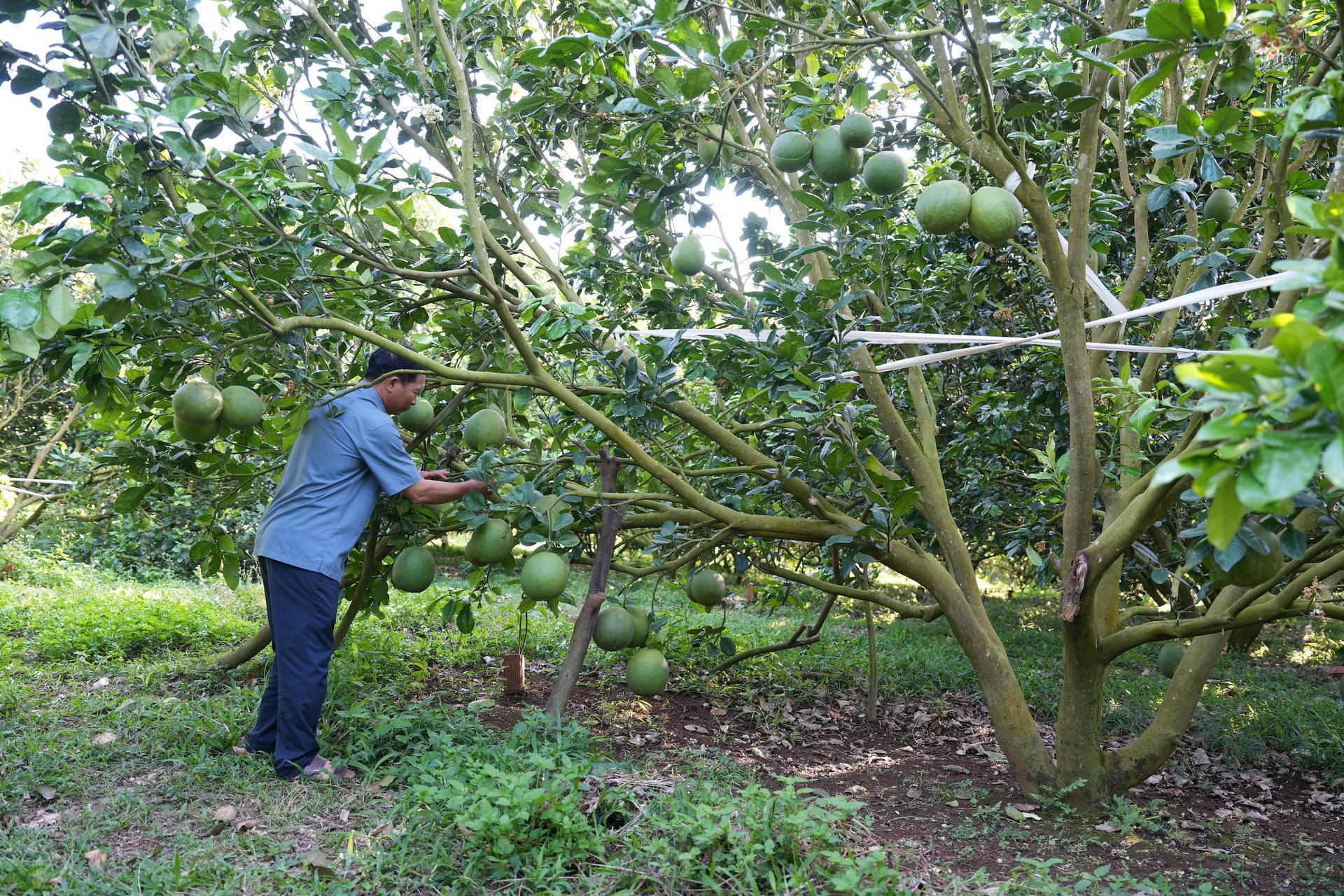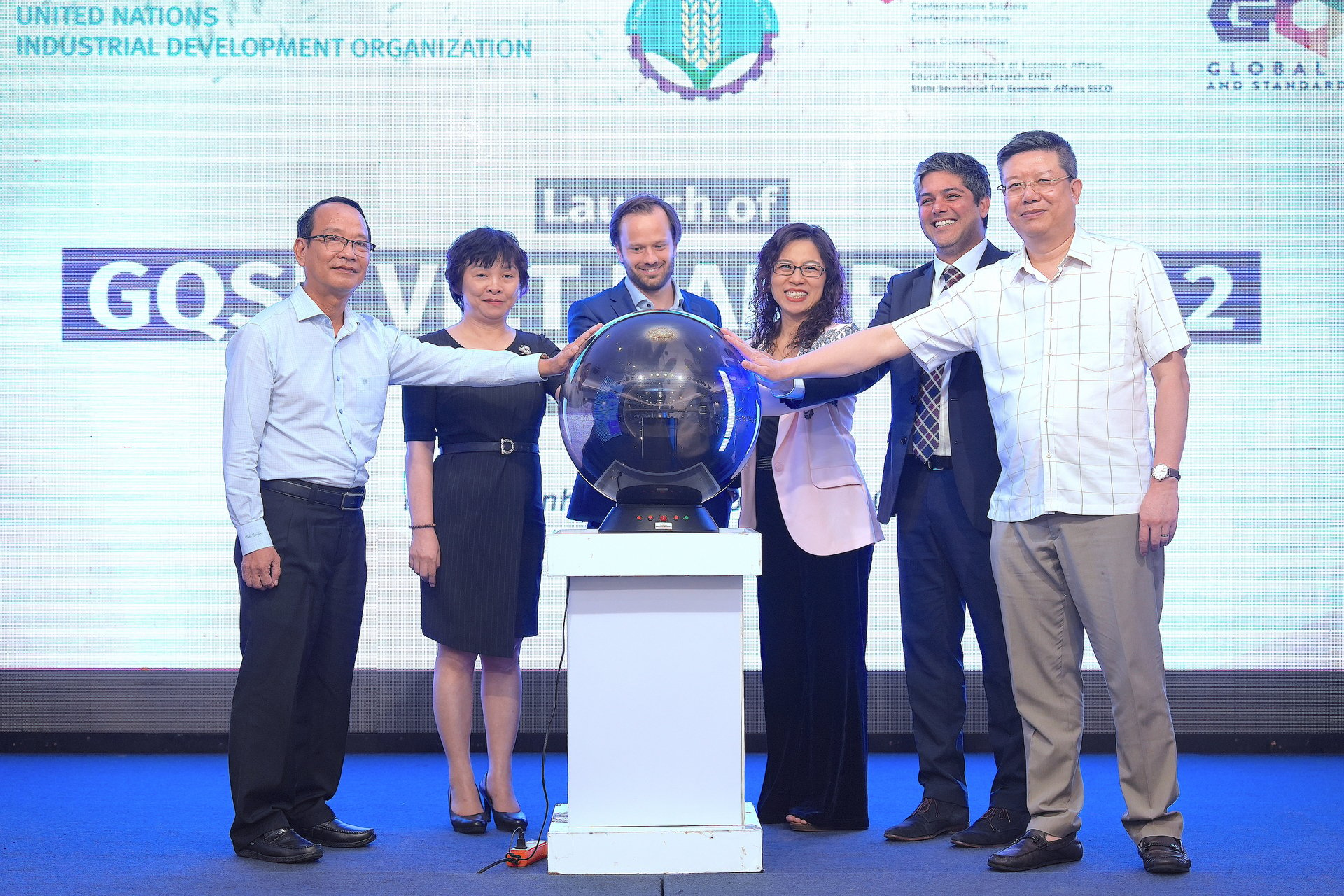November 25, 2025 | 13:28 GMT +7
November 25, 2025 | 13:28 GMT +7
Hotline: 0913.378.918
November 25, 2025 | 13:28 GMT +7
Hotline: 0913.378.918
The main reasons leading to products being refused import in Vietnam in 2020 are bacterial contamination (22%), hygiene control conditions (18%), veterinary drug residues (13%), labeling (14%), pesticide residues (10%), and additives (7%).
That is the report of the United Nations Industrial Development Organization (UNIDO) at the workshop "Improving the Capacity to Comply with Standards and Quality of Vietnam's Fruit Value Chain to Promote Exports" by UNIDO co-ordinated with The National Agro-Forestry-Fisheries Quality Assurance Department (NAFIQAD), Vietnam Institute of Agricultural Engineering and Pos Harvest Technology (Ministry of Agriculture and Rural Development) held on September 11, 2023, in Ho Chi Minh City.
The workshop was conducted within the framework of the Global Quality and Standards Program (GQSP Vietnam), sponsored by the State Secretariat for Economic Affairs (SECO), to improve the competitiveness and sustainability of Vietnam's tropical fruit exports.

Proper cultivation following "standard" procedures is important for Vietnamese fruit products to have a foothold in markets.
The workshop aimed to assess the overall situation of compliance with quality standards of Vietnamese exported fruits. Sharing the results of the project "Improving capacity to comply with quality standards in the mango and grapefruit value chain in the Mekong Delta" period 2020 - 2023 (Phase 1). And evaluate coordination and technical support activities to develop the fruit industry for phase 2 of the project.
At the workshop, Le Thanh Hoa, Deputy Director of the National Agro-Forestry-Fisheries Quality Assurance Department, Director of the SPS Vietnam, Ministry of Agriculture and Rural Development, said that in Phase 1, the project has achieved several significant results contributing to enhancing the capacity of the mango and grapefruit industry to meet the requirements of modern export markets, providing technical assistance to improve compliance capacity for mango and grapefruit in the Mekong Delta region, developing and applying standard operating procedures in the export chain to apply export models with a total of 2,000 tons of mango and grapefruit to markets such as Korea, Japan, the US, and the EU; Developing and transferring processing and preservation technologies suitable for small and medium-sized enterprises, helping to extend post-harvest preservation time to 40 days for mango, 120 days for grapefruit, reducing the rate of Post-harvest loss rate is 15%.

Farmers are instructed on mango care techniques according to the process to "conquer" fastidious markets.
Along with that is building a field diary system for fruits connected to the national Production Unit Code (PUC) and Packing House Code (PHC) database, strengthening the capacity of inspection centers.
However, according to Le Thanh Hoa, exporters in developing countries still face significant challenges to meet and comply with international market requirements. In particular, technical trade barriers hinder countries' access to the market. Lengthy procedures and rejection at the border due to non-compliance with market requirements can lead to large financial losses for the manufacturer. To achieve and maintain access to international trade and integration into global markets, compliance with standards and evidence of conformity are essential.

An organic grapefruit garden in Dak Nong.
Mr. Nima Bahramalian, UNIDO Project Manager of the Global Quality and Standards Program, informed that the total number of cases of rejection of fruits and nuts exported by Vietnam to 5 major markets (Australia, China, EU-28, Japan, USA) increased by 42% from 24 cases in 2010 to 34 cases in 2020; In which, the US market has the largest rejection rate (67%), Australia, China and the EU have similar rejection rates (8-13%).
The leading causes of rejections in Vietnam in 2020 were infections (22%) and hygiene conditions/controls (18%). Other causes include veterinary drug residues (13%), labeling (14%), pesticide residues (10%), and additives (7%).
To limit import refusals as above, Nima Bahramalian said that Vietnam needs to strengthen the national food safety monitoring system and coordinate with all relevant parties to mobilize all official control measures.

Representatives of UNIDO, SECO, and the Ministry of Agriculture and Rural Development introduced and launched phase 2 of the project with the theme "Improving standards and quality of Vietnamese fruits."
According to Nguyen Nam Phuong Thao, Sales Director, Hoang Phat Fruit Company Limited, to meet the standards and quality of export markets, the company regularly has training programs for farmers and cooperatives that provide ingredient, knowledge training for factory workers. Thanks to that, fruit quality is better, especially fungal diseases are controlled, reducing the rate from 10 - 12% to 3 - 5%, with 0% shipments.
To improve the ability to meet standards and quality of fruit, Nguyen Nam Phuong Thao recommended agencies and units to promote research and application of fruit varieties that are disease-resistant, easy to preserve transport, suitable for fruit production, and suitable for each consumer's fresh or processed products. The state must invest in rural infrastructure systems and ports to reduce transportation costs, especially modern and synchronous cool storage and logistics systems. Also, there is a policy to attract investors to the agricultural sector and access preferential capital for agricultural businesses.
Translated by Tu Quyen

(VAN) An Giang promotes supply-demand connections, standardizes quality and builds value chains, creating a foundation for sustainable bird’s nest development and aiming to expand exports.
/2025/11/24/5339-4-nongnghiep-075331.jpg)
(VAN) Recently, the conference on 'Sustainable Fisheries Linkage Chain - Tilapia for Export' took place in Tien Hai commune, Hung Yen province.
/2025/11/21/4309-2-153400_128.jpg)
(VAN) Green and low-emission rice is paving the way for Vietnamese rice to enter high-end markets, marking the beginning of a transformation journey toward greening and elevating the national rice brand.

(VAN) ‘Right to Win’ outlines a national action plan that shapes a new vision for Viet Nam’s agriculture in an era of renewal and global integration.

(VAN) Lam Dong’s farmed sturgeon output this year is expected to reach 2,300 tons, worth VND 450 billion, affirming the brand’s position on the market.

(VAN) A surge in Ukrainian egg exports, largely driven by soaring sales to the UK over the last few years, has notably pushed up egg prices on the domestic market.

(VAN) The price of Arabica Catimor coffee in Quang Tri is currently at VND 25,000–27,000/kg (fresh cherries), the highest level ever recorded